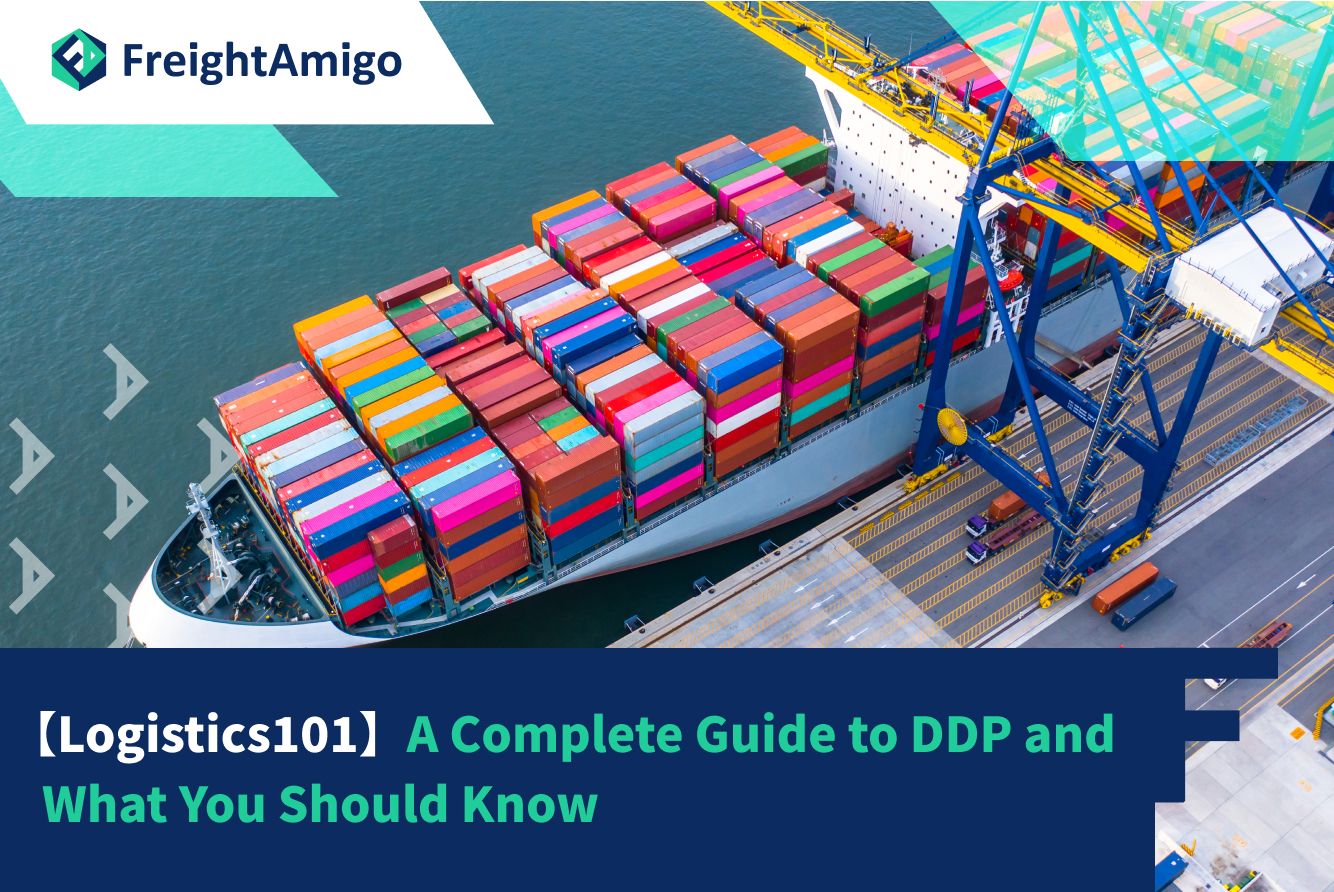Author Name: Tiffany Lee – Marketing Analyst at FreightAmigo
In 1936, the International Chamber of Commerce (ICC) first proposed Incoterms, which provided various terms for the parties to establish and fulfill the transportation contract of goods and defined the rights and obligations of the parties in international trade, such as CIF, FOB, FAS, CFR, etc. FreightAmigo will work with you to understand Delivered Duty Paid (DDP) and help make trade easier!
What is Delivered Duty Paid (DDP)?
DDP refers to an Incoterm where the seller assumes all risks and costs associated with delivering the goods to the specified destination for unloading and customs clearance, including paying duties and taxes, obtaining the necessary approvals and registrations from authorities in the importing country. However, the seller is not responsible for unloading the goods.
DDP places the maximum risk and responsibility on the seller, with the buyer assuming minimal responsibility. The risk or responsibility only transfers to the buyer at the specified destination.
Unless the seller is familiar with the customs regulations of the buyer’s country, DDP is highly risky in terms of delays and unforeseen additional costs. Therefore, this trade term should be used with caution.
Is it a wise choice?
DDP may disadvantage the seller in comparison to the buyer because it calls for the seller to bear all risks related to shipping the products to the destination or defined place. As a result, inexperienced importers should steer clear of the DDP trade phrase and instead think about adopting Delivery at Place (DAP).
How to Calculate DDP Costs?
You can use our freight rate calculator to estimate shipment costs when making a reservation using the FreightAmigo intelligent online freight platform. Simply enter the weight, amount, and value of the items together with the shipping address (origin and destination) on the platform, and it will display the freight costs and anticipated delivery times for several shipping providers. In only a few clicks, compare and search over 250 foreign ocean freight rates in real time!
DDP Vs DDU
Delivered Duty Unpaid (DDU) and Delivered Duty Paid (DDP) are different in that DDU requires the buyer to pay any additional expenses after receiving the products, such as local taxes and import tariffs, whereas DDP requires the seller to cover these costs. DDU may be more inconvenient for the customer because they must pay the required extra fees after getting the products.
DDU does not guarantee the delivery of the goods because the seller is not required to make sure that the goods arrive at the address supplied by the customer, which is another distinction between DDU and DDP. When using DDP, the seller is obligated to ensure that the products are delivered because they are responsible for covering any necessary taxes as well as the expenses and hazards of transportation.
Things to Note
- Under DDP, the seller assumes the maximum responsibility. If the seller cannot obtain the import license directly or indirectly, they should still use this condition with caution. When using this condition, it is recommended to record it in writing and stamp it to avoid disputes later on.
- If both parties agree, some import-related expenses, such as value-added tax, may not be the seller’s responsibility. The contract may specify something like “delivered duty paid, value-added tax unpaid (specified destination)” to prevent misunderstandings.
- The seller must make sure that the items can be unloaded, and the buyer is required to unload the goods from the ship at the designated place. The seller should make arrangements with the delivery site before signing the sales contract. The seller has no entitlement to compensation from the buyer if the seller incurs unloading charges at the designated place in accordance with the transportation contract, unless otherwise agreed upon by both parties.
- As the seller assumes the risk before delivery, the delivery address should be written as clearly as possible, preferably to a specific point within the specified destination. If no specific delivery point is agreed upon or the delivery point is uncertain, the seller can choose the most suitable place for delivery at the specified location.
- Although the seller is not required to pay the buyer’s insurance premium, because they bear the risk of transportation, they typically insure the products to minimize that risk.
FreightAmigo helps you simplify the freight procedure and control the cost more accurately! If you are planning to ship goods overseas, please go to the FreightAmigo page for inquiries.

